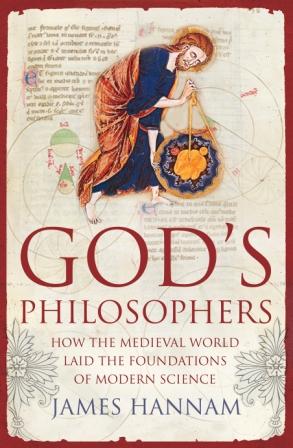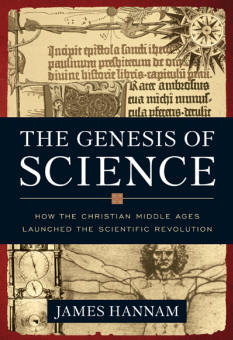
|
If you have enjoyed Bede's Library, you can order my book, The Genesis of Science: How the Christian Middle Ages Launched the Scientific Revolution (US) from Amazon.com or God's Philosophers: How the Medieval World Laid the Foundations of Modern Science (UK) from Amazon.co.uk. |
|
For my latest thoughts on science, politics, religion and history, read Quodlibeta
|
Footnotes to the Great Libraries of Alexandria
![]()
[1] Plutarch Antony and Julius Caesar tell the established story of Cleopatra’s two lovers.
[2] Julius Caesar Alexandrine War describes the first war while Dio Cassius Roman History 51, 17 mentions Octavian’s.
[3] Dio Cassius Roman History 68, 32.
[4] ibid. 78, 22.
[5] Ammianus Marcellinus Roman History 22, 16, 15. The rubble remained into the fifth century, Epiphanius Weights and Measures 9.
[6] Eutropius Compendium of Roman History 9, 23.
[7] Guidoboni Catalogue of Ancient Earthquakes p247, p267.
[8] Unless otherwise noted the details given in this paragraph come from either Strabo Geography 17, 1, 7 or Ammianus Marcellinus op. sit. 22, 7, 1.
[9] Achilles Tatius Leukippe and Kleitophon 5, 1.
[10] Parsons The Alexandrian Library p112 quotes the Prolegomena to Aristophanes by John Tzetzes.
[11] Strabo op. sit. 17, 1, 9.
[12] Josephus Jewish Antiquities 12, 2, Philo Life of Moses 5, Athenaeus Deipnosophist 5, 203. Irenaeus Against Heresies 3, 21, 2 disagrees and says it was Ptolemy I Soter.
[13] Diogenes Laertius Lives of Eminent Philosophers 5, 78.
[14] Georgius Syncellus Chronicle p217.
[15] Vitruvius On Architecture 7, preface, 6.
[16] Galen Commentary on the Epidemics of Hippocrates 3, 239.
[17] Athenaeus op. sit. 1, 10.
[18] Strabo op. sit. 13, 1, 54.
[19] Blum Kallimachos and the Origins of Bibliography p130 quotes ‘P. Oxy 1241’.
[20] Parsons op. sit. p160.
[21] The final librarian mentioned in ‘P. Oxy 1241’ is a certain Kydas while a later document mentions a Onasander who had the job about 88BC. Both appear to be political place men with no scholarly standing. See Fraser Ptolemaic Alexandria p333.
[22] ibid. p333.
[23] Parsons op. sit. p160.
[24] Assuming each scroll needed a space 10cm x 10cm x 50cm and half the volume of the building is required for access and the supporting structure. Reading rooms would be separate.
[25] Casson Libraries in the Ancient World p74.
[26] Plutarch Antony 58.
[27] Casson op. sit. p50. The estimate of 30,000 assumes the scrolls are packed into the available space with free standing bookshelves as well as shelves on the walls. If the area thought to be used as space for readers also contained book stacks the estimate might double. Casson reports some have estimated the library could contain 200,000 scrolls but this seems impossible given the space available.
[28] Hornblower and Spawforth Oxford Classical Dictionary ‘Books, Greek and Roman’.
[29] Blum op. sit. ch3, note 54. Blum also wonders if enough Greek literature would have existed to fill the 500,000 or so scrolls even allowing for many duplicates.
[30] ibid. p153.
[31] Strabo op. sit. 17, 1, 8.
[32] Canfora The Vanished Library p76.
[33] Athenaeus op. sit. 5, 203.
[34] Parsons op. sit. p112 quotes the Prolegomena to Aristophanes by John Tzetzes.
[35] Strabo op. sit. 2,1,5.
[36] El-Abbadi The Life and Fate of the Ancient Library of Alexandria p154 gives a full discussion.
[37] Seneca Dialogue on the Tranquillity of the Mind 5.
[38] Canfora op. sit. p69 and Fraser op. sit. p334. The relevant volume of Livy is lost.
[39] Caesar The Civil Wars 3, 111.
[40] Caesar The Alexandrine War 1.
[41] Butler The Arab Conquest of Egypt p408 (note).
[42] ibid. p408.
[43] Florus Epitome of Roman History 2, 13.
[44] Lucan The Civil War 10, 24.
[45] Russell Plutarch p7.
[46] Aulus Gellius Attic Nights 7, 17.
[47] Canfora op. sit. p123.
[48] ibid. p134 discusses the theory of Gustav Parthey.
[49] Ammianus Marcellinus op. sit. 22, 16, 15.
[50] Paulus Orosius History Against the Pagans 6, 15.
[51] Polybius History of Rome 34, 14, 6.
[52] Fraser op. sit. p86.
[53] Philo Embassy from the Jews to Gaius 22.
[54] Richard Carrier has pointed out to me papyrus ‘P.Kron. 4. “Circular of the strategos', Tebtynis, AD135 which mentions membership of the library in Alexandria but not the Royal Library or the Library of the Ptolemies. This papyrus does, however, seem to be the closest to an explicit reference after 100BC.
[55] The best literary reference for those seeking to show the Library did survive is Suetonius Life of Domitian 20, 1 which states the Emperor sent to Alexandria to get new copies of scrolls destroyed when a Roman library burnt down. However, the other Alexandrine libraries would be quite adequate for the task and the Library of Alexandria is not referred to.
[56]Rowe Discovery of the Famous Temple and Enclosure of Serapis at Alexandria
[57] Strabo op. sit. 17, 1, 10.
[58] Clement of Alexandria Exhortation to the Heathen 4.
[59] Georgius Syncellus op. sit. p282.
[60]Rowe op. sit. p62.
[61] Aphthonius Progymnasmata 12.
[62] Rufinus Tyrannius History of the Church 2, 23.
[63] Ammianus Marcellinus op. sit. 22, 16, 15.
[64] Socrates Scholasticus History of the Church 3, 3.
[65] Tertullian The Apology 13.
[66] John Chrysostom First Homily Against the Jews 6, 1.
[67] Canfora op. sit. p138.
[68] Paulus Orosius op. sit. 6, 15.
[69] Epiphanius op. sit. 11.
[70] ibid 11.
[71] Fraser op. sit. p323.
[72] Plutarch Life of Antony 58.
[73] Gibbon Decline and Fall of the Roman Empire chapter 28, (footnote 41).
[74] Jerome Lives of Illustrious Men 134.
[75] Rufinus Tyrannius History of the Church 2, 22.
[76] Socrates Scholasticus op. sit. 5, 16.
[77] Theodoret History of the Church 5, 22; Hermias Sozomen History of the Church 7, 15.
[78] Eunapius Lives of the Philosophers and Sophists ‘Antony’.
[79] Socrates Scholasticus op. sit. 7, 15.
[80] Socrates Scholasticus op. sit. 7, 15.
[81] John of Nikiou Chronicle 84, 87.
[82] Suda ‘Hypatia’
[83] Synesius of Cyrene Letters 10, 15, 16, 33, 81.
[84] Butler op. sit. p402 (note) quotes Makrîeî’s Account of Egypt.
[85] Rufinus Tyrannius op. sit. 2, 23.
[86] Evagrius History of the Church 2, 5.
[87] Gibbon Decline and Fall of the Roman Empire chapter 28.
[88] Aphthonius op. sit. 12.
[89]Rowe op. sit. contains plans of the temple layout.
[90] Rufinus Tyrannius op. sit. 2, 23; – Ammianus Marcellinus op. sit. 22, 16, 15.
[91] Aphthonius op. sit. 12.
[92] Parsons op. sit. p370.
[93] Butler op. sit. p416.
[94] Kennedy Greek Rhetoric Under the Christian Emperors p60.
[95] Ammianus Marcellinus op. sit. 22, 16, 15.
[96] Canfora op. sit. p135.
[97] Paulus Orosius op. sit. 6, 15.
[98] Socrates Scholasticus op. sit. 3, 2; Hermias Sozomen op. sit. 4, 7.
[99] Julian Letters ‘ To the Alexandrians’.
[100] Ammianus Marcellinus op. sit. 22, 11, 2.
[101] Julian op. sit. ‘To Ecdicius’.
[102] ibid. ‘To Porphyrius’.
[103] Suda ‘Jovian’
[104] Parsons op. sit. p416 quotes the relevant section of the Chronology of Gregory Bar Hebraeus. However the story is only found in the Arabic edition of this work. This version is considerably shorter than the original Syriac and George made the translation into Arabic towards the end of his life. That he inserted a new story into a shortened version strongly suggest that, despite his research, he had not heard it when he wrote the original edition and so the story was not well known.
[105] Gibbon op. sit. chapter 60.
[106] Parsons op. sit. p419; Canfora op. sit. p99.

